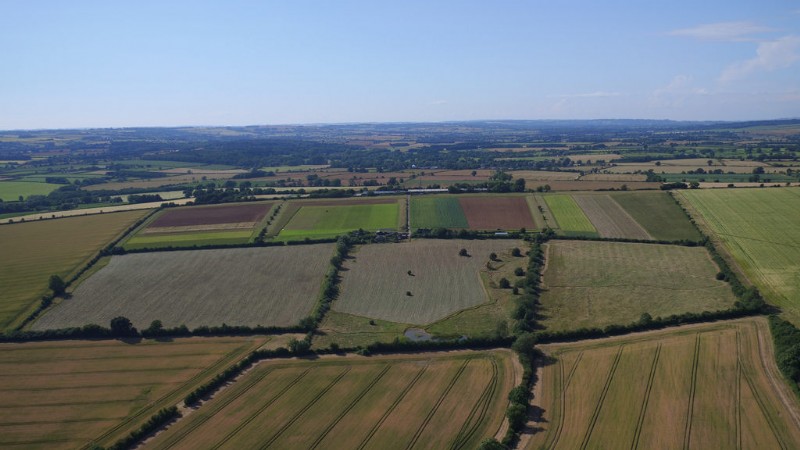When we inspected our only remaining hive this week, the National, it was great to see that the colony appears to be thriving. We found the queen almost instantly, and could see lots of eggs, indicating that she is healthy and well, and the brood was plentiful. The colony has already filled it's first super with no sign of swarming and we also found good amounts of pollen and nectar stores which is another good sign. These bees are still twitchy and quite aggressive but this could be the reason they survived the winter and late spring so well. We've added an empty super so they can start filling that too.
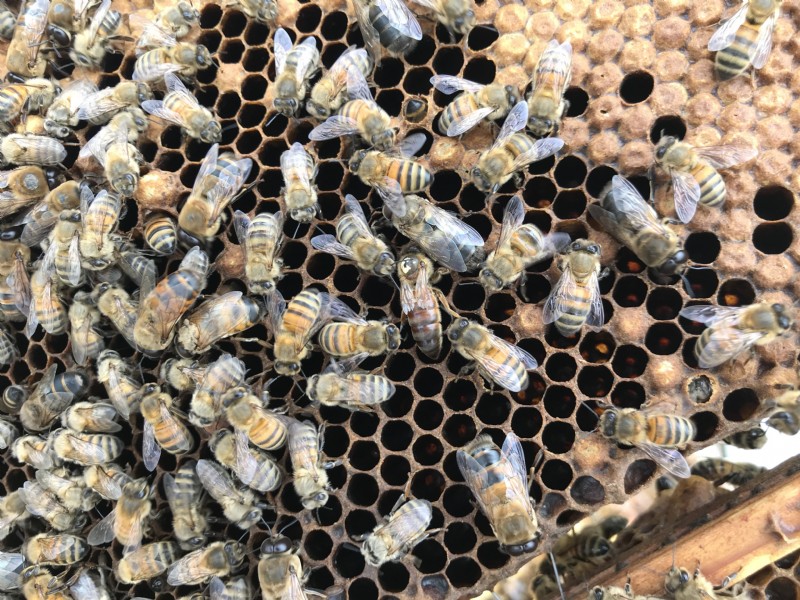
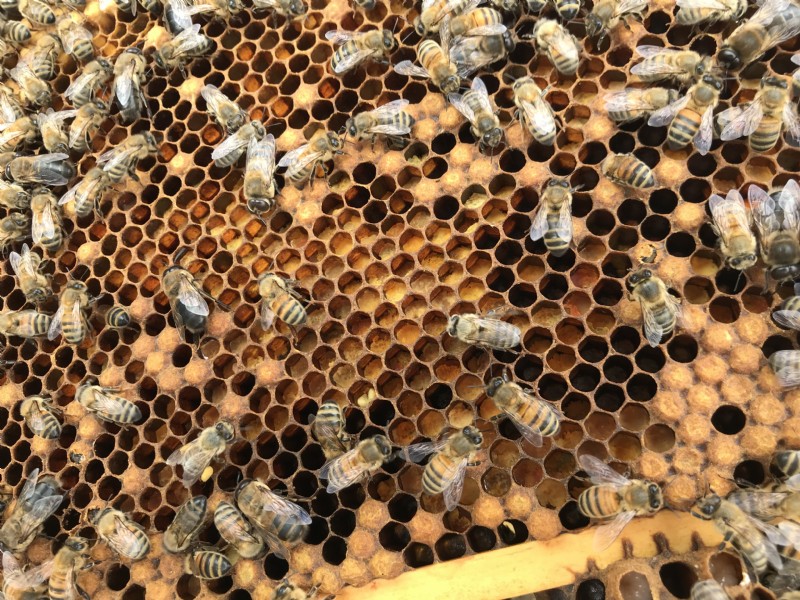
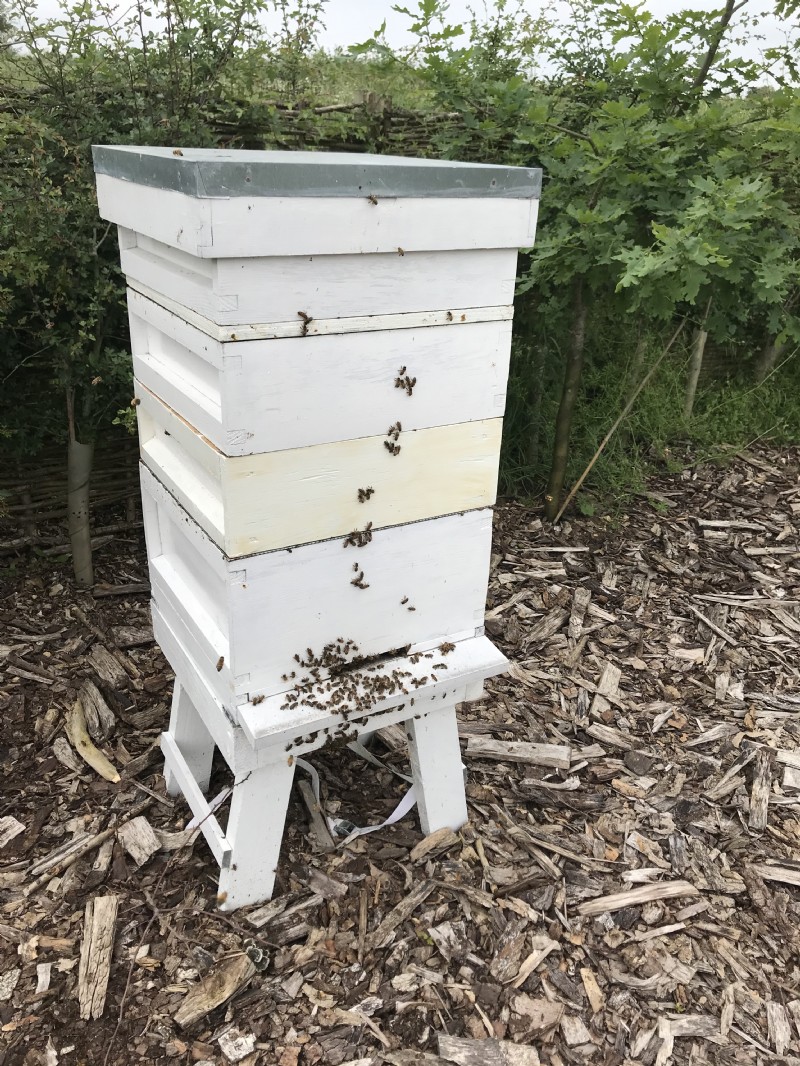
The next job was to help Chris inspect his hives. He has lost two colonies over the winter but the others look good and strong. Two of the hives had unclipped queens so we quickly clipped those and let them carry on the good work. Under one of the hives we did find a lot of dead bees, but the hive above seemed healthy, so we think at some point there has been a swarm and it had hung to the underside of this hive without a queen before sadly perishing.
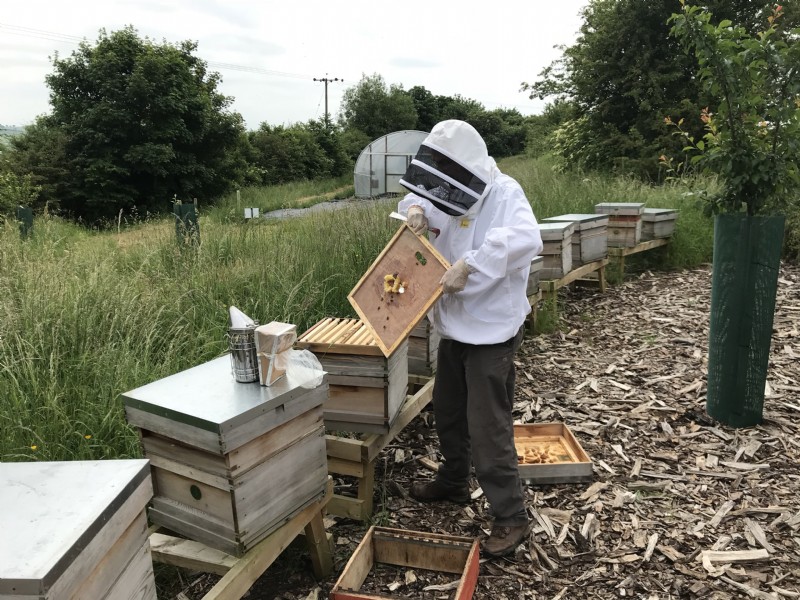
During the inspection we saw lots of bright yellow honeycomb which is a classic sign that the bees are foraging on the Sainfoin which has been in flower for some weeks now, and will be for several weeks to come.

In one of Chris' hives we found a queen cup with an egg so we took the opportunity to split this colony and put this, together with a few extra frames, into one of our empty WBC hives in the hope that this colony will develop into a full colony. These frames are staying inside a nuc box for a few weeks to keep them in a nice compact space while the colony develops. We hope to be able to repeat this exercise over the coming weeks with another of Chris' hives so that we can populate our other WBC.
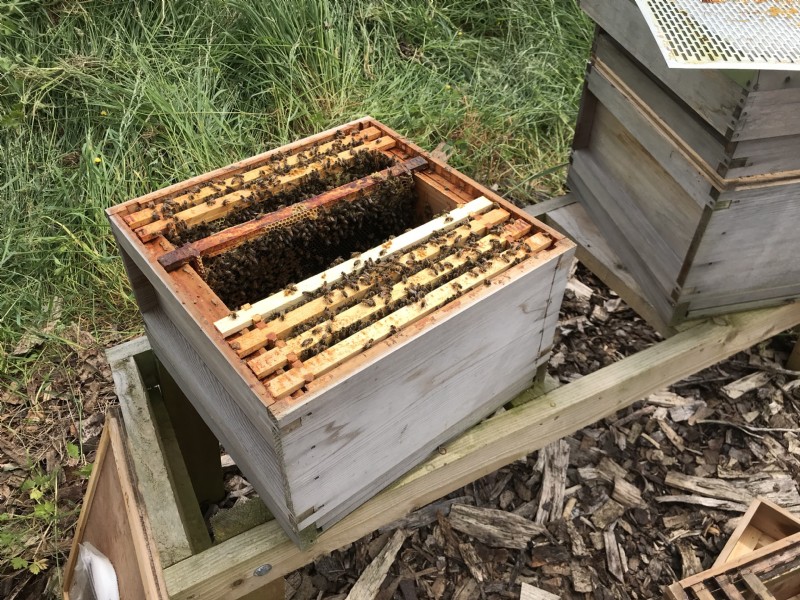
Chris also needs to repopulate his empty national hives soon, replacing the colonies that have been lost over the winter, but there is a shortage of nucs available this spring due to the tricky winter and late spring, so it'll be a case of watching this space to see if we can find some more colonies.
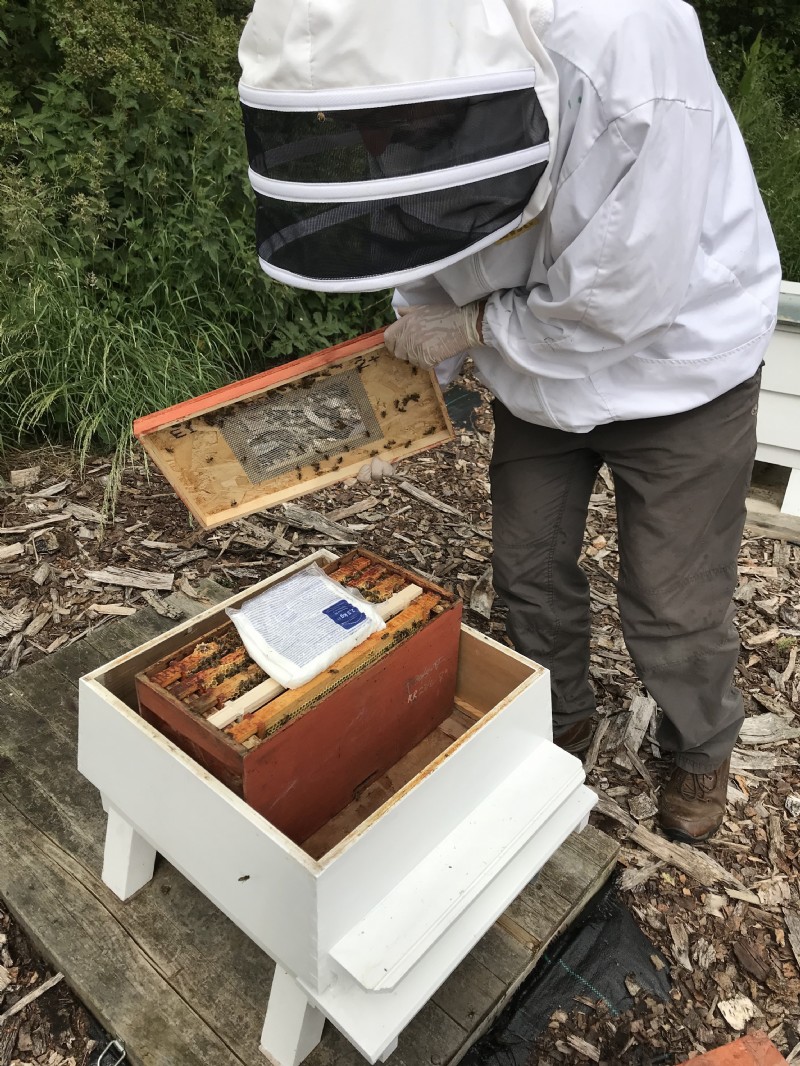
We also took the opportunity to do some gardening during the inspection, as the grass around the apiary had grown quite long and was starting to creep towards the hives, so we chopped this back and tidied it up.









